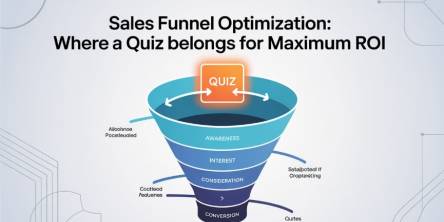Enterprise Data Management - Key Elements and Benefits

Effective enterprise data management is crucial for modern organizations. It helps drive informed decision-making, achieve operational efficiency, ensure data integrity, and comply with regulatory requirements.
What is Enterprise Data Management?
EDM or Enterprise Data Management involves setting policies and standards to organize and manage data access, collection, storage, analysis, security & more to establish data governance within the organization.
The data that is shared within an organization is called Enterprise data. Different departments and even across different geographical regions can share and use this data. Any loss of such data can result in significant financial losses, and enterprises spend resources and time to ensure the security and storage of such data.
Enterprise data includes structured data in spreadsheets, databases & unstructured data such as images, video content and more.
Enterprise data can be in many forms like -
- Operational data which can contain transactional records, customer orders, billing, accounting information and more
- Network alerts and logs from IT infrastructure, data from application developers etc
- Strategic data that is generated from CRM systems, sales reporting, market data, trends and other analytical data
- Application-specific data which can include logistics-related GPS data, IoT sensor data, web and social media application data and much more
An enterprise data management service can help identify and reduce or eliminate existing or potential issues related to enterprise data. It supports different departments of an organization to access accurate data in real time.
Need for Enterprise Data Management (EDM) in business-
Enterprise data management plays a significant role in helping build a standardized system that can be used to source, access, monitor, store, manage, secure & ultimately share the data across different business functions.
Data is a precious commodity for businesses, helping them make informed decisions. Enterprise data management helps collect, analyze & use this data to make real-time decisions.
EDM systems assist in the following -
- Streamlining operations
- Making decisions in real time
- Improve customer experience and generate better responses to customer needs
- Gaining competitive advantage
- Creating Space for innovation
- Regulatory compliances
- Reducing costs
Key Elements of Enterprise Data Management
- Data governance - Data governance forms the foundation for EDM. It lays out the policies, roles and procedures related to data. It ensures that the data's privacy, integrity and security complies with regulatory standards, accountability, and ethical responsibility and offers a seamless flow of information.
- Data integration - Access to data is possible only when the various data streams from multiple sources and formats are integrated and stored in a centralized warehouse or repository. Data integration helps make data uniform, allowing users and stakeholders to access and extract actionable insights. Data integration helps reduce errors, enforces better system collaboration and saves time. Different types of data integration are virtualization, consolidation, propagation & federation.
- Master data management - Master data management consists of organizing, categorizing, centralizing and transforming the streaming data. Master data management ensures that data quality is enhanced, which helps in making informed decisions. Master data management eliminates redundancies by combining tools, processes and software.
- Data security - Data security is generally a big concern for enterprises. Cyber threats are increasing daily, and regulations must be continuously updated to keep up with such threats. Enterprise data management can help implement measures that help prevent and counter data breaches, leaks and thefts. Measures like encryption, Virtual Private Networks (VPN), two-factor authentication, and blockchain technologies can help secure data.
- Data architecture creates guidelines to help businesses streamline data integration, extraction, transformation and modeling. Functional architecture helps organize and secure operational infrastructure, where the data is stored and can be used and manipulated without compromising security.
- Diverse and different data sources - When enterprises query various data sources for a detailed analysis, it's generally time to use enterprise data management. EDMs can help consolidate information from diverse data sources into a single central repository, allowing businesses to overview a particular business area comprehensively.
Benefits of Enterprise Data Management
- Cost reduction through operational efficiencies
- Creates a data-driven culture
- Accelerates launch of new products
- Creates space for innovation and disruption
- Helps in opening up revenue sources with new capabilities and services
- Sets a foundation for monetizing data
- Helps save time, resources and duplication of information
Steps to Strengthen Enterprise Data Management
- Evaluating existing data management systems
- Understanding organizational goals
- Implementing governance in data management using standard practices
- Implementing an agile enterprise data architecture
- Implementing data management tools and technologies
- Developing a data management roadmap
In conclusion, there is ample potential in embracing enterprise data management for businesses. EDM helps connect disparate data sources, helps manage myriads of digital information, increases and speeds up report-making capabilities across different divisions of an enterprise & ensures regulatory compliances. For businesses looking to capitalize on such benefits, connecting with an enterprise data management services company offering extensive data services can help meet its business goals.
Similar Articles
Times have changed and how! Take modern technology and the fast-paced digital economy, it is driving. Given the market conditions, any company's infrastructure has become more than just a technical detail.
It has been for everyone to see that the modern digital economy is distinguished by high volume, real-time financial transactions.
Business success has become reliant on efficiency and agility of the underlying technology infrastructure. Clearly, companies now depend on cloud computing to provide seamless services while managing exponential data growth.
Hospitals operate in environments where availability and patient safety are paramount at all times. As medical supply chains expand and regulatory oversight becomes more demanding, manual tracking methods introduce delays and risk.
Every sales funnel has one core goal: turn attention into revenue as efficiently as possible. Yet many funnels leak value at critical stages—visitors bounce, leads go cold, and sales teams chase prospects who were never a good fit.
Decentralized Finance (DeFi) has transformed how users earn passive income through blockchain-based financial systems. Among its most popular use cases,
Staying organized can feel like a full-time job. Between meetings, deadlines, and personal commitments, it’s easy to get overwhelmed.
Choosing the right GIS mapping software depends on what you need to accomplish. Some platforms cater to developers who want to build custom applications from scratch.
For data intensive industries such as insurance, the global business landscape is undergoing a profound transformation. Thanks to all the relentless technological innovation, this shift presents both significant challenges and unparalleled opportunities for modernization of the insurance sector.









